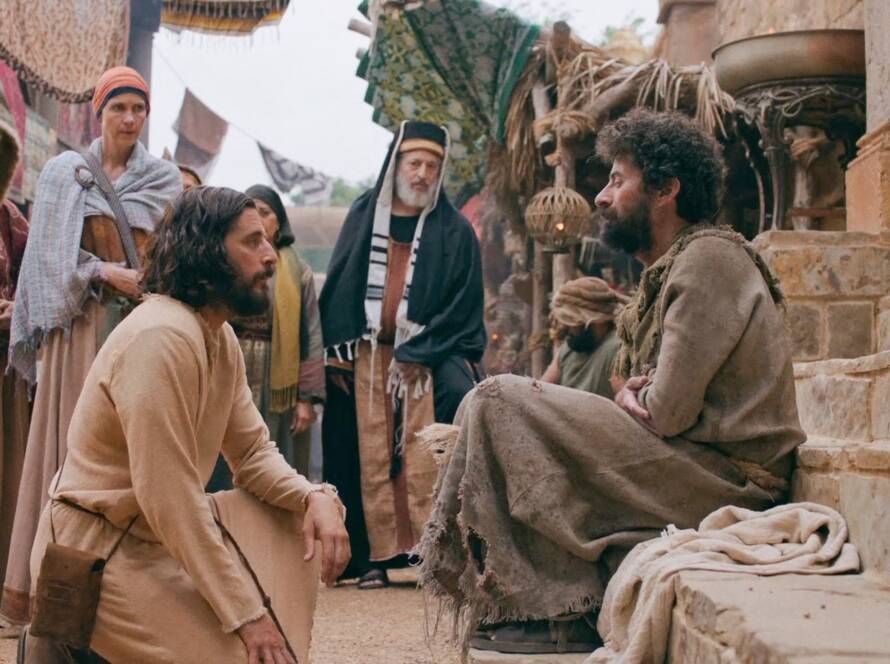Jesus in the Digital Age: A Theology of Social Media”
The Digital Altar: Idolatry and the Search for Identity In the quiet hours, as we scroll, a silent transaction occurs. We offer our photos, our thoughts, our carefully curated lives, and in return, we seek a fleeting sense of validation—a like, a share, a follow. This is not just a casual exchange; it’s a form of worship.
The Apostle Paul warns against idolatry, not just the worship of statues but the act of placing anything in the position of God as the ultimate source of our identity and worth.
Social media creates a fertile ground for modern idolatry. It conditions us to seek our self-worth in the feedback of an algorithm and the approval of strangers. The “digital self” we meticulously construct becomes a false god, promising affirmation that ultimately rings hollow.
Our true identity, according to the Christian faith, is found not in followers, but in our status as a child of God, fearfully and wonderfully made. When our value is tied to a post’s performance, we are trading our divine inheritance for a mess of digital pottage.

The Comparison Trap: Envy’s New Playground
Social media is a highlight reel, not a documentary. We see the perfect vacations, the effortless glow-ups, the thriving businesses, and the seemingly flawless families. What we don’t see are the arguments, the anxieties, the failures, and the mundane struggles that make up real life. This curated reality becomes a powerful fuel for comparison and envy.
The spiritual danger here is profound. The Bible calls us to be content with what we have and to rejoice with those who rejoice. But how can we genuinely celebrate a friend’s success when a quick scroll reveals dozens of other people we feel are “ahead” of us? Social media can steal our joy, turn gratitude into discontent, and make us resent the very people we claim to care about. It’s a digital battlefield where the fight against covetousness is a daily war.

The Disembodied Faith: Trading Community for Connection
The Christian faith is fundamentally incarnational. God didn’t send a text message; He became flesh and blood in Jesus Christ. Our faith is meant to be lived in physical community, with real people who can see our tears, hear our laughter, and hold us accountable. We are a body, not a network.
Social media, however, can create a Gnostic-like split, where our “online self” is the one that gets all the attention, while our real-life relationships wither. We can feel “connected” to thousands of people we’ve never met, all while isolating ourselves from the church down the street.
True Christian community isn’t about following a hashtag; it’s about sharing a meal, serving together, and bearing one another’s burdens in person. The church is a physical organism, and our digital habits often lead us to amputate ourselves from it, one swipe at a time. Jesus in the digital age is a topic we must all analyze if we are to remain faithful to Christ’s principles.

When Pastors Become Celebrities
In the digital age, a pastor’s reach can extend far beyond their local pulpit. This has given rise to the “celebrity pastor” culture, where charismatic individuals amass massive followings, and faith is consumed like entertainment. While their reach can be a positive tool for evangelism, it also presents a significant theological risk.
This trend can subtly shift the focus from the local, covenanted body of believers to a consumeristic model of faith. We can “follow” a dozen different preachers, picking and choosing our spiritual guidance without ever submitting to the accountability of a local church.
The biblical model of church leadership and community requires that pastors know their flock intimately, not just broadcast to a faceless audience from a distance. Faith becomes a performance to watch, rather than a life to live in community and this can make the experience a less personal one.
Prioritize gathering with a local church community rather than just watching online services from afar. The teachings of well-known pastors can be a wonderful supplement to your faith, but they should not replace the personal, face-to-face connection found within a committed church family.

The Flood of Temptation: Adult Content and the Soul’s Battle
The most pervasive and spiritually destructive of these influences is adult content, particularly pornography. The internet has made it an ever-present temptation, often just a few clicks away, even unintentionally. For the Christian, this is more than a behavioral problem; it is a battle for the soul.
Pornography fundamentally distorts God’s design for sexuality as a sacred act within the covenant of marriage. It commodifies and objectifies human beings, reducing them from image-bearers of God to objects for consumption. This runs contrary to the Christian call to honor the body as a temple of the Holy Spirit.
The ready availability of such content can lead to a host of spiritual and psychological consequences:
-
Desensitization: Habitual exposure can deaden one’s conscience and moral compass, making it harder to discern right from wrong.
-
Addiction: The brain’s reward system can become rewired, leading to a compulsive pursuit of pleasure that can damage real-world relationships and spiritual vitality.
-
Distorted View of Self and Others: It can fuel body image issues, lead to unrealistic expectations in relationships, and create a sense of isolation and shame, all of which are antithetical to a life of freedom in Christ.

The Digital Echo Chamber: Misinformation and Online Radicalization
Beyond adult content, the internet is a breeding ground for other spiritual threats, including misinformation, conspiracy theories, and online radicalization. Algorithms are designed to show us what we already agree with, creating echo chambers that reinforce our existing beliefs and make us resistant to outside perspectives. This can lead Christians down dangerous paths.
Misinformation and “Fake News”: As followers of Jesus, we are called to be people of truth, reflecting the God who is truth (John 14:6). Yet, Christians are just as susceptible as anyone to sharing sensationalized or false information. This not only erodes our credibility but also sows seeds of distrust and division within the body of Christ and the wider world.
Hate and Radicalization: The internet can also be a tool for radicalizing individuals by exposing them to extreme political or social ideologies that are antithetical to the Christian call to love our neighbors. It can fuel a spirit of hatred and hostility towards those with different beliefs, transforming a faith based on grace and reconciliation into one of judgment and condemnation. For some, online forums become a space to justify violence or hatred in the name of a distorted Christian nationalism, a direct perversion of the Gospel.
Because of this constant exposure, digital discipleship is not optional; it is essential to follow Jesus in the Digital Age. It requires a renewed commitment to prayer, biblical discernment, and a return to the wisdom of the local, embodied church community as the primary source of truth, accountability, and love in an increasingly chaotic digital world.

Bible Study: Jesus in the Digital Age
Opening Prayer:
Heavenly Father, as we gather to study your Word, we invite your Holy Spirit to guide us. Open our eyes to see our digital habits through the lens of Scripture. Give us wisdom to navigate the online world with discernment, and courage to align our hearts and actions with your truth. May this study draw us closer to you and to each other. In Jesus’ name, Amen.
Icebreaker Question:
What is one way technology or social media has been a genuine blessing to your life? What is one way it has been a struggle?
The biblical study on this topic would focus on how the Bible defines our identity in Christ and warns against placing our worth in anything else.
-
Scripture to Study:
-
Exodus 20:3-4: “You shall have no other gods before me. You shall not make for yourself an idol…” This foundational commandment is the basis for understanding that anything we worship or place our ultimate trust in, other than God, is an idol.
-
Isaiah 43:7: “everyone who is called by my name, whom I created for my glory, whom I formed and made.” This verse establishes our identity as being created for God’s glory, not for the approval of others.
-
1 Corinthians 6:19-20: “Or do you not know that your body is a temple of the Holy Spirit within you, whom you have from God? You are not your own, for you were bought with a price. So glorify God in your body.” This passage grounds our identity in the reality of being bought by Christ and calls us to live for His glory.
-
Galatians 1:10: “For am I now seeking the approval of man, or of God? Or am I trying to please man? If I were still trying to please man, I would not be a servant of Christ.” The Apostle Paul directly addresses the temptation to seek human approval over God’s.
-
-
Biblical Principles: Our identity is secured by God’s creation and Christ’s redemption. Social media’s constant demand for approval challenges this truth by subtly encouraging a search for validation from the world.
This section would explore the biblical condemnation of envy and the call to contentment, which are directly challenged by social media’s culture of comparison.
-
Scripture to Study:
-
Proverbs 14:30: “A tranquil heart gives life to the flesh, but envy makes the bones rot.” This proverb vividly illustrates the destructive, corrosive nature of envy on our inner being.
-
Philippians 4:11-12: “Not that I am speaking of being in need, for I have learned in whatever situation I am to be content.” Paul’s declaration of contentment is a powerful antidote to the dissatisfaction bred by comparison.
-
Romans 12:15: “Rejoice with those who rejoice, weep with those who weep.” This verse directly counters the envy-filled heart by commanding us to genuinely celebrate the successes of others, rather than seeing them as a threat to our own happiness.
-
-
Biblical Principles: The spiritual antidote to comparison is contentment, a state of grace rooted in trusting God’s provision for our lives, and love, which allows us to celebrate others without feeling diminished.
This study would highlight the biblical emphasis on physical presence and genuine community, contrasting it with the disembodied nature of online interactions.
-
Scripture to Study:
-
John 1:14: “And the Word became flesh and dwelt among us, and we have seen his glory, glory as of the only Son from the Father, full of grace and truth.” The Incarnation of Jesus is the ultimate theological argument for the importance of physical reality and presence.
-
Hebrews 10:24-25: “And let us consider how to stir up one another to love and good works, not neglecting to meet together, as is the habit of some, but encouraging one another, and all the more as you see the Day drawing near.” This command emphasizes the necessity of physical gathering for Christian growth and mutual encouragement.
-
1 John 4:20: “If anyone says, ‘I love God,’ and hates his brother, he is a liar; for he who does not love his brother whom he has seen cannot love God whom he has not seen.” This verse grounds love in tangible, real-life relationships.
-
-
Biblical Principles: The Christian faith is meant to be lived out in embodied community. While online platforms can connect us, they cannot replace the essential, life-giving act of physically gathering together to worship, learn, and serve.
This final section would address the biblical perspective on temptation, purity, and the dangers of uncritical consumption of media.
-
Scripture to Study:
-
Matthew 5:28: “But I say to you that everyone who looks at a woman with lustful intent has already committed adultery with her in his heart.” Jesus’ teaching on lust is a powerful warning against the internal spiritual danger of pornography and lustful content, regardless of whether a physical act occurs.
-
Ephesians 5:3-4: “But sexual immorality and all impurity or covetousness must not even be named among you, as is proper among saints…”. This passage calls believers to a high standard of purity, actively rejecting impure content.
-
2 Timothy 2:22: “So flee youthful passions and pursue righteousness, faith, love, and peace, along with those who call on the Lord from a pure heart.” This verse provides a strategy for battling temptation: to actively flee from it and pursue a life of righteousness in community with other believers.
-
Proverbs 4:23: “Keep your heart with all vigilance, for from it flow the springs of life.” The wisdom literature warns against uncritical consumption and encourages guarding our hearts and minds against harmful influences.
-
-
Biblical Principles: Battling temptation requires both fleeing from sin and pursuing righteousness. The accessibility of harmful content online makes vigilant guarding of the heart more critical than ever, supported by a reliance on God’s grace and accountability from a trusted community.




